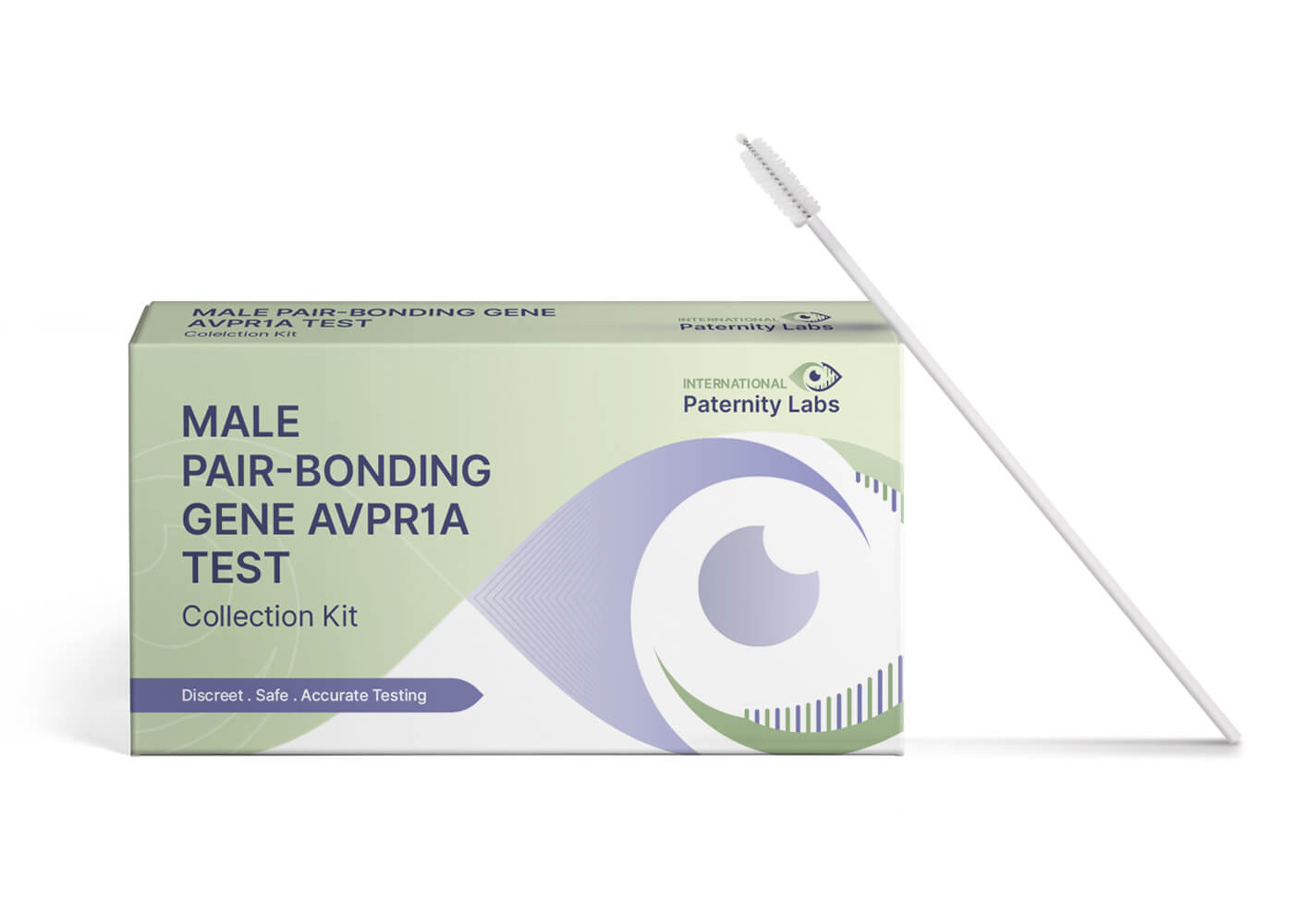Male Pair-Bonding Gene AVPR1A Test
Discover if your genes influence the likelihood of forming a strong bond with your partner by taking a genetic test.
- Simple buccal swab sample collection
- Discreet, Safe and Accurate
- Includes all laboratory fees
$149.00
DNA Tests

Order Your Confidential Home DNA Test Online!
About this test
Description
The “male pair-bonding” gene corresponds to a genetic variant of the AVPR1A gene. The AVPR1A gene encodes the arginine vasopressin receptor 1A, responsible for binding vasopressin and transmitting signals into cells.
Vasopressin, a hormone or “chemical messenger,” typically affects water retention in the kidneys and elevates blood pressure when released into the bloodstream. However, when vasopressin is directly released into the brain, it can impact social and sexual behavior, including tendencies toward infidelity. In individuals with the “male pair-bonding” version of the gene, this signal transmission is disrupted.
Men carrying the RS3 334 allele associated with the “male pair-bonding” version are less likely to form a strong bond with their partners and are more prone to experiencing marital crises or divorce. They exhibit a lower likelihood of marriage and a higher tendency to cohabitate compared to those without the RS3 334 allele. Spouses of men with the RS3 334 allele report lower levels of affection and consensus in their marriages.
Importantly, there is no evidence that this variant influences sexual behavior in females. Different AVPR1A variations associated with an increased likelihood of infidelity in females are detected through the Female Infidelity Gene AVPR1A Test.
Technical Specifications
The AVPR1A gene is situated on chromosome 12, and individuals inherit two copies of this gene, one from each parent. A simple DNA test can reveal the specific forms of AVPR1A that a person has inherited.
The variant tested involves three different AVPR1A variants (RS1, RS3, and GT25) arising from short tandem repeats (STRs) in the regulatory region, which controls AVPR1A protein levels.
In particular, the RS3 variant has a specific version called the RS3 334 allele, which is linked to reduced pair-bonding in males. The AVPR1A STR test assesses the length of the RS3 repeat region to determine whether a person carries the RS3 334 infidelity variant.
100% Confidentiality
As our client, your privacy is extremely important to us, and we hold all information provided us in strict confidentiality. We will never sell, resell or make available your personal, or financial information to other companies or organizations. You will only be contacted using the method you choose, to confirm your order or to discuss your case. All communication is in the strictest confidence, and for that reason, we require you to create a password that will restrict access to your case. In addition, our privacy policies that have been established in our laboratory and offices safeguard the security of your case.




